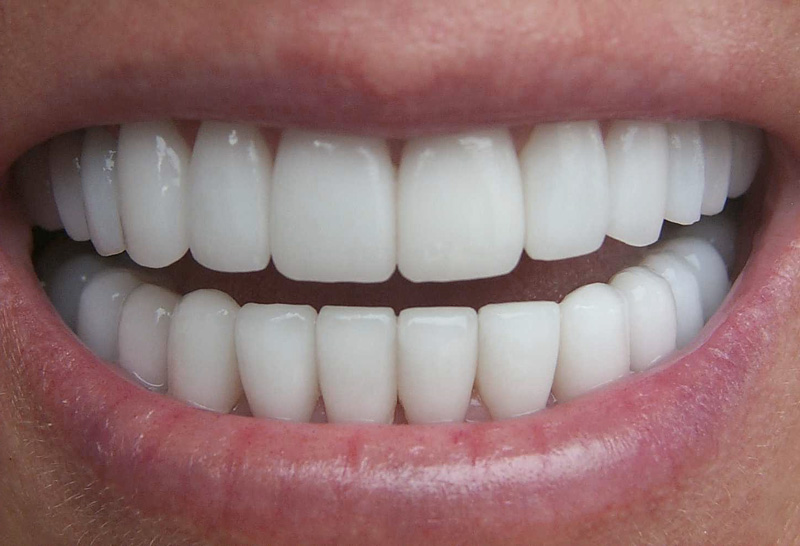Good dental hygiene means taking care of your teeth and gums through daily habits like brushing, flossing, and seeing your dentist regularly. It helps prevent cavities and gum disease and reduces your risk for conditions like heart disease and diabetes.
Oral health and overall wellness are closely connected. A healthy mouth supports your immune system, prevents chronic illness, and improves your quality of life. If you’re looking for the best dentist in NJ, the right dental habits are a great place to start.
Many people underestimate how much their oral hygiene impacts their day-to-day comfort, energy levels, and even sleep quality. Whether you’re dealing with tooth sensitivity or simply want a brighter smile, a consistent routine is the first step toward real, lasting improvements.
What Are the Basics of Good Dental Hygiene?
Brushing, flossing, using mouthwash, and eating a healthy diet are the main components of daily dental care.
Dental hygiene is built on consistency and good technique. No matter your age or current habits, it’s never too late to improve your oral care routine.
How Often Should You Brush Your Teeth?
You should brush your teeth twice a day with fluoride toothpaste and a soft-bristled toothbrush. Angle the brush at 45 degrees toward your gum line and use small circular motions.
Make sure you reach all areas of your mouth—especially your molars, the backs of your teeth, and along the gum line. These are common spots where plaque hides and cavities start.
Replace your toothbrush every 3–4 months and make sure you’re reaching your gum line and back teeth.
Why Is Flossing Important?
Flossing once per day removes food and plaque between teeth where your toothbrush can’t reach. It helps prevent gum disease, tooth decay, cavities, and bad breath.
The goal is to clean between your teeth while keeping your gums healthy. Inflammation and bleeding are often early signs of trouble—and flossing helps prevent both.
Wrap the floss in a “C” shape around each tooth and gently slide it under the gum line.
Should You Use Mouthwash?
Yes—mouthwash helps rinse away debris, reduce bacteria, and protect your enamel. Choose an alcohol-free option if you have sensitive gums or dry mouth.
Using mouthwash at night can be especially helpful since saliva production slows while you sleep. This gives bacteria an opportunity to settle. A quick rinse can help keep your mouth fresh and protected overnight.
Add mouthwash to your nighttime routine for a more complete clean.
What Foods Help Your Teeth Stay Strong?
A diet that supports oral health includes calcium-rich foods, crunchy produce, and limited sugar.
Crunchy fruits and vegetables, like apples and carrots, help clean teeth naturally. Dairy products like milk and cheese provide calcium and vitamin D, which strengthen enamel and support gum health.
Leafy greens, almonds, and fish also contain nutrients that support the bone structure of your jaw and teeth. What you eat every day directly affects the health of your gums and your body’s ability to fight oral infections.
Snack smart—avoid sugary drinks and acidic snacks that wear down enamel over time.
How Often Should You See the Dentist?
Schedule dental checkups twice a year for professional cleanings and early detection of oral issues.
Dentists can remove tartar, catch cavities early, and treat signs of gum disease before they become serious. They’ll also give you personalized recommendations based on your oral health.
If you have a history of dental issues or ongoing concerns like bleeding gums or dry mouth, your dentist may suggest more frequent visits. Early intervention often saves time, money, and discomfort in the long run.
Even if you have good habits at home, regular dental visits are still a must.
How Does Oral Health Affect the Rest of Your Body?
Poor dental hygiene is linked to serious conditions like heart disease, diabetes, and respiratory infections.
When bacteria from gum disease enter the bloodstream, it can cause inflammation throughout the body. This increases your risk for conditions like pneumonia, arthritis complications, and even pregnancy problems.
The mouth is often called the “gateway to your body” because of its strong connection to other organ systems. Inflammation in your gums can trigger systemic effects, especially if left untreated.
Remember, taking care of your mouth is also taking care of your body. That’s why dental marketing is so important. it brings this kind of knowledge to more people, so they can improve their overall health.
What Are the Signs of Poor Dental Hygiene?
These warning signs may indicate that your oral health needs attention:
- Swollen, bleeding, or tender gums
- Persistent bad breath
- Tooth pain or sensitivity
- Loose teeth or gum recession
- Plaque buildup or visible tartar
Even if you’re not experiencing pain, changes in your gum color, breath, or tooth alignment are red flags worth investigating. Don’t wait until symptoms get worse—your smile deserves prompt care.
Don’t ignore these symptoms. If they appear, see your dentist.
How Can You Improve Your Smile Today?
Here are a few simple ways to improve your dental routine right now:
- Stay hydrated – Water washes away food and balances mouth acidity.
- Clean your tongue – Bacteria live there too.
- Avoid tobacco – Smoking increases your risk of oral cancer and gum disease.
- Personalize your routine – Talk to your dentist about tools or products for your specific needs.
Lifestyle habits like regular hydration and a balanced diet can work alongside brushing and flossing to improve your oral health over time. Starting small can lead to major changes in how your mouth feels and functions each day.
Small habits like these have a big impact on your smile and overall health.
Dental Hygiene Frequently Asked Questions
What is dental hygiene?
Dental hygiene is the practice of keeping your teeth and gums clean to prevent cavities, gum disease, and other health issues.
How often should I brush and floss?
Brush your teeth twice daily and floss once a day to remove plaque and food debris.
Can poor dental hygiene affect my health?
Yes. It’s linked to conditions like heart disease, diabetes, and infections due to inflammation and bacteria entering the bloodstream.
What foods are good for your teeth?
Dairy, leafy greens, and crunchy fruits and vegetables support healthy enamel and gums.
Why Choose the Best Dentist in NJ?
The best dentists offer personalized care, early intervention, and long-term support for your oral health goals.
Even with great brushing and flossing habits, regular dental visits help catch issues early and provide expert advice tailored to your mouth.
A local, trusted dentist can also introduce you to newer tools or treatments that match your lifestyle and oral health needs. From cosmetic improvements to preventive care, they’ll help you make the most of your smile.
A trusted dentist is your partner in building a healthier, more confident smile.



